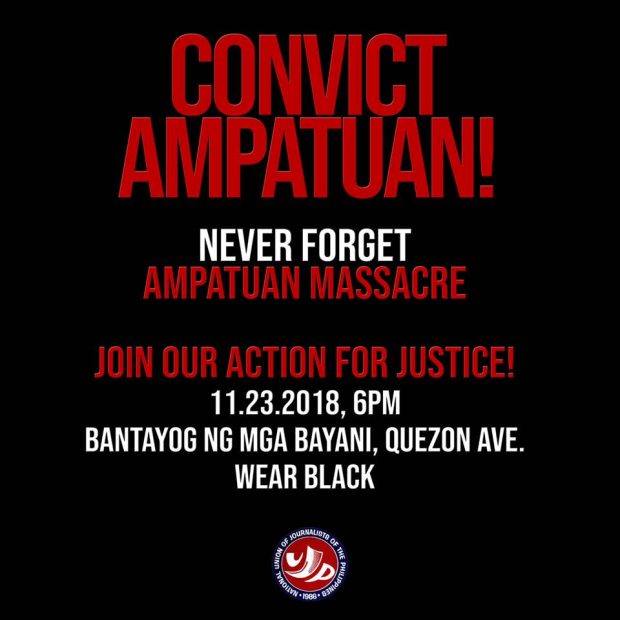‘Futile canard’: Media group denounces red-tagging
The National Union of Journalists of the Philippines (NUJP) is thinking of taking legal actions against continued efforts to link the media group with the communist revolutionary movement it sees as part of an orchestrated effort to intimidate it into silence.
NUJP officers found themselves answering requests for interviews today from community news outfits around the country soliciting reactions to charges by someone identified only as “Ka Ernesto,” who claimed to be a former member and supposedly “admitted” that the organization had links to Communist Party of the Philippines (CPP) founder Jose Ma. Sison.
The group said that when asked where the story originated from, they invariably pointed to banner stories carried by a number of little-known Manila-based tabloids – Police Files Tonite, Bagong Bomba and Saksi Mata ng Katotohanan – all of which carried the exact same headline: “NUJP pinamumunuan ng CPP-NPA-NDF” (NUJP headed by CPP-NPA-NDF), the latter initials referring to the New People’s Army and the National Democratic Front.

This is the second time in just a few weeks the NUJP has been linked to the revolutionary movement since a certain Mario Ludades, claiming to be one of the founders of the CPP, accused the media group of being a “legal front” of the underground movement in stories run by several outfits on December 26, incidentally the 50th anniversary of the CPP.
“It is hilarious that they keep repeating these charges since the NUJP’s membership represents a broad spectrum of creeds and political beliefs bound by a common dedication to defending and expanding the bounds of freedom of the press and of expression,” the group’s national directorate said in a statement today.
NUJP officers said they were initially tempted to ignore the “fantastic” and “hilarious” account of “Ka Ernesto” but for the fact that it exposes their members and other colleagues to potential danger from those who might readily believe the “canard”.
“With at least 12 colleagues slain under the watch of a president who has actually justified the murder of journalists… and openly and constantly curses and threatens media, we are taking this matter very, very seriously,” the group said.

Duterte’s attacks
Early in his term, President Rodrigo Duterte said in a speech before reporters in his hometown Davao City that media killings are justified.
“Just because you’re a journalist you are not exempted from assassination, if you’re a son of a bitch?” Duterte said.
Duterte never let up against media outfits he perceives to be overly critical of his presidency, even threatening to block media group ABS-CBN’s petition to have its broadcast franchise renewed with the House of Representatives.
In December 2017, Duterte said he would only be willing to compromise with ABS-CBN if the network helps promote his campaign to shift to a federal form of government.
“Kung magtulong kayo diyan sa federal system campaign at gawain ninyong slogan also for the unity and to preserve this republic, makipag-areglo ako,” he said.
He repeatedly threatened the Philippine Daily Inquirer and its owners’ business interests.
Following a tirade against Rappler, the Securities and Exchange Commission cancelled the outfit’s license while prosecutors filed tax evasion charges against its chief executive officer Maria Ressa.
Individual journalists accused of being overly critical against Duterte’s bloody drug war were also threatened and harassed by social media groups and online trolls supportive of Duterte.
Recently, websites of alternative media groups were also digitally attacked they said may be part of the crackdown against so-called communist fronts.
“It does not take genius to figure out who is behind this determined, if futile, effort to cow us. But we tell you now and will tell you again, do your worst, you will fail,” the NUJP vowed.
‘Enemies of press freedom’
The NUJP also condemned the three tabloids who published the “canard”.
“It is unfortunate that there exist within the profession unscrupulous scum who allow themselves to be used by these cowardly enemies of press freedom even if it endangers colleagues,” the NUJP said, obviously referring to the three tabloids.
“But we will let them be. Their venality shames them enough,” the NUJP said.
The group warned, however, that it will hound those who are behind the red-tagging campaign and make them pay should its members are harmed. # (Raymund B. Villanueva)

